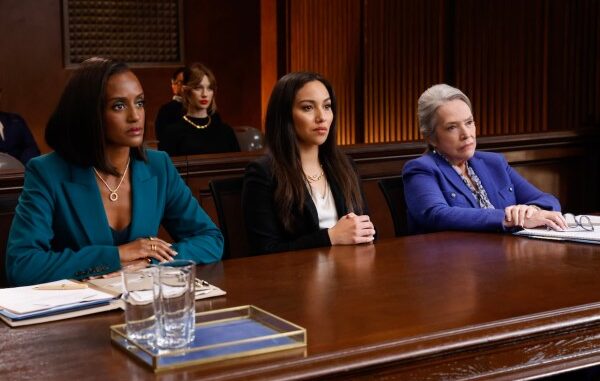
The Case of the Conflicted Viewers: Matlock's Reboot, Nostalgia, and the Modern Storytelling Divide
The gavel bangs in a television courtroom once more, signaling the return of a familiar face. But this time, the face is younger, the courtroom brighter, and the stakes, arguably, higher. The "Matlock" reboot, a modern reimagining of the beloved legal drama, has arrived, and with it, a fierce debate dividing viewers between the warm embrace of nostalgia and the demands of contemporary storytelling. Is this a welcome revival or a tarnishing of a cherished memory? The answer, it seems, lies in the eye of the beholder, caught between the comforting familiarity of the past and the evolving landscape of television narrative.
On one side of the courtroom stands the prosecution, armed with the compelling evidence of nostalgia. For generations raised on Andy Griffith’s portrayal of the folksy, seemingly unassuming lawyer, Benjamin Matlock, the show represents more than just legal intrigue. It's a touchstone of simpler times, a reminder of a television landscape where cases were solved with homespun wisdom and a persistent pursuit of the truth. The original "Matlock" offered a predictable comfort: a clearly defined moral compass, satisfying courtroom showdowns, and a protagonist who outsmarted the elite with disarming charm. These viewers, the loyal defenders of the old guard, find the reboot a jarring departure, a betrayal of the core principles that made the original so endearing. To them, updating the character and the narrative dilutes the essence of what made "Matlock" a cultural phenomenon. The very act of replacing the iconic Columbo-esque figure with a younger, perhaps more polished lawyer feels like a sacrilege, a soulless attempt to capitalize on a recognizable brand without understanding its deeper appeal.
Imagine, for example, the outcry if the new Matlock abandoned his signature seersucker suit for a slick designer wardrobe. This seemingly superficial change would symbolize a deeper shift away from the everyman persona that defined the original. Similarly, altering the deliberate pacing and character-driven storytelling in favor of fast-paced action and intricate plot twists could alienate those who appreciated the deliberate, almost meditative quality of the original. For these viewers, the reboot is not a reimagining, but a desecration, a blatant disregard for the nostalgic heart of the show.
However, the defense attorney rises, armed with a compelling argument for modern storytelling. They contend that television, like any art form, must evolve to remain relevant. Clinging rigidly to the past is not preservation, but stagnation. The world has changed, and so too must the stories we tell. The original "Matlock," while beloved, may feel dated to a contemporary audience accustomed to more complex narratives, morally ambiguous characters, and visually dynamic presentation. The defense argues that the reboot offers an opportunity to introduce the core themes of justice and truth-seeking to a new generation, presenting them in a format that resonates with their viewing habits and expectations.
Consider the potential benefits of a modernized "Matlock." Perhaps the reboot explores contemporary legal issues like cybercrime, environmental law, or social justice advocacy, reflecting the challenges of the 21st century. Maybe the new Matlock grapples with personal complexities, exploring the ethical dilemmas and emotional toll of navigating a morally grey world. Or perhaps the supporting characters are given more depth and agency, offering diverse perspectives and challenging the protagonist's worldview. These additions, while potentially jarring to those seeking a carbon copy of the original, could breathe new life into the concept, making it relevant and engaging for a modern audience.
Ultimately, the "Matlock" reboot exemplifies the ongoing tension between nostalgia and innovation in television. There is no easy verdict. Both sides of the argument hold merit. The challenge for creators lies in striking a delicate balance, honoring the spirit of the original while embracing the possibilities of modern storytelling. Perhaps the key is to understand what truly resonated with audiences about the original "Matlock" – the pursuit of justice, the underdog championing the truth, the comforting familiarity of a well-crafted mystery – and to find new and engaging ways to express these themes in a contemporary context.
Whether the reboot succeeds or fails in this endeavor remains to be seen. But one thing is certain: the debate surrounding it highlights the powerful hold nostalgia has on our cultural consciousness and the ever-present pressure for art to evolve and adapt to a changing world. The case of the conflicted viewers is, in essence, a reflection of our own internal struggle to reconcile our love for the past with our anticipation for the future. The gavel may have banged, but the deliberation continues.
